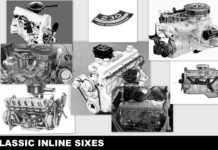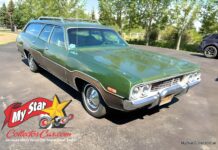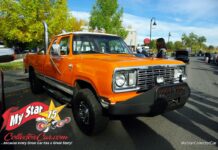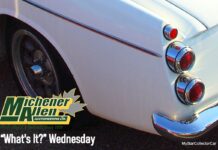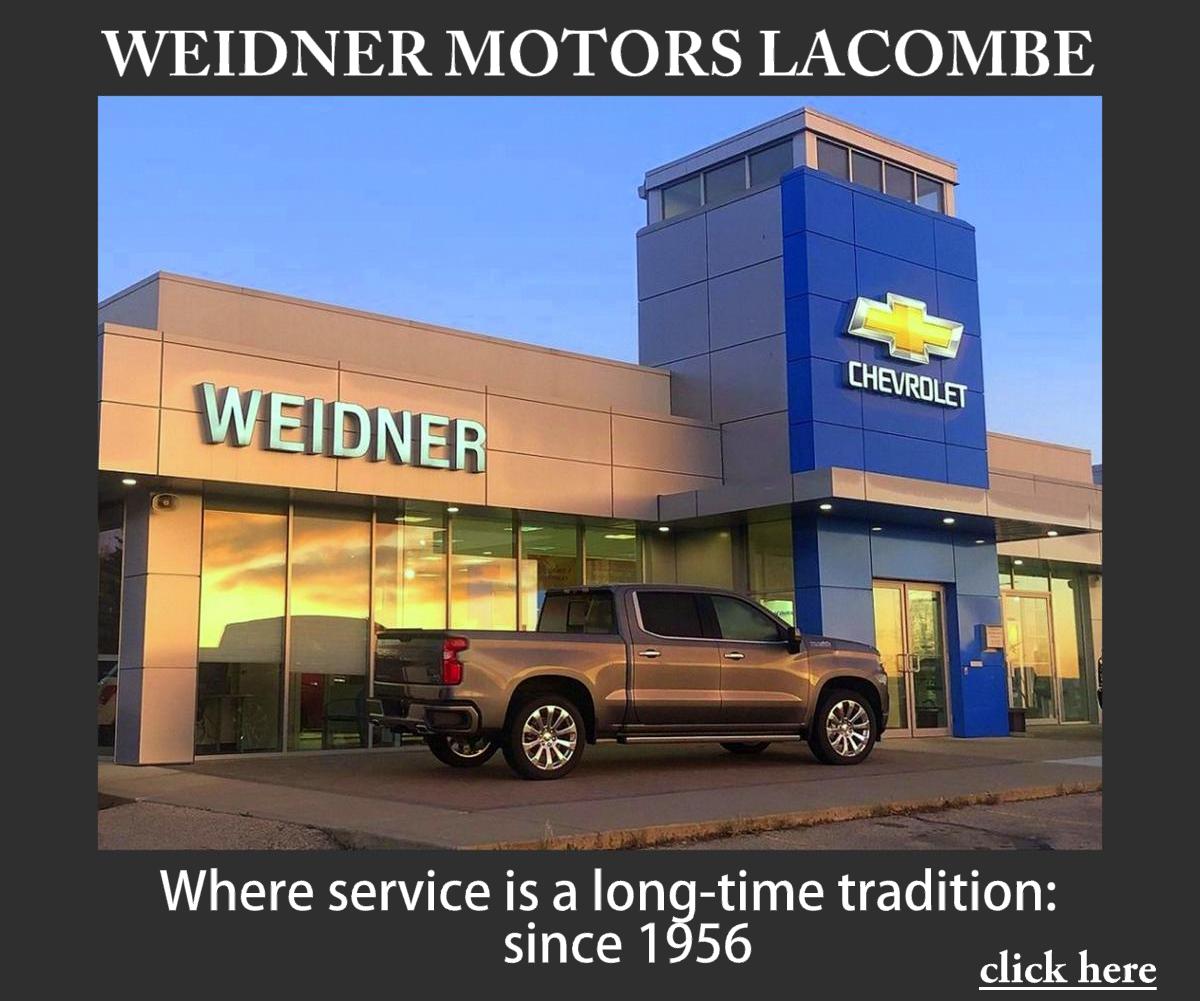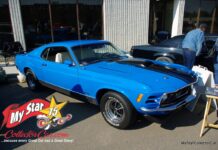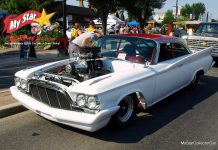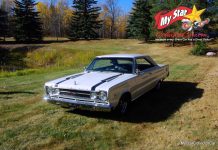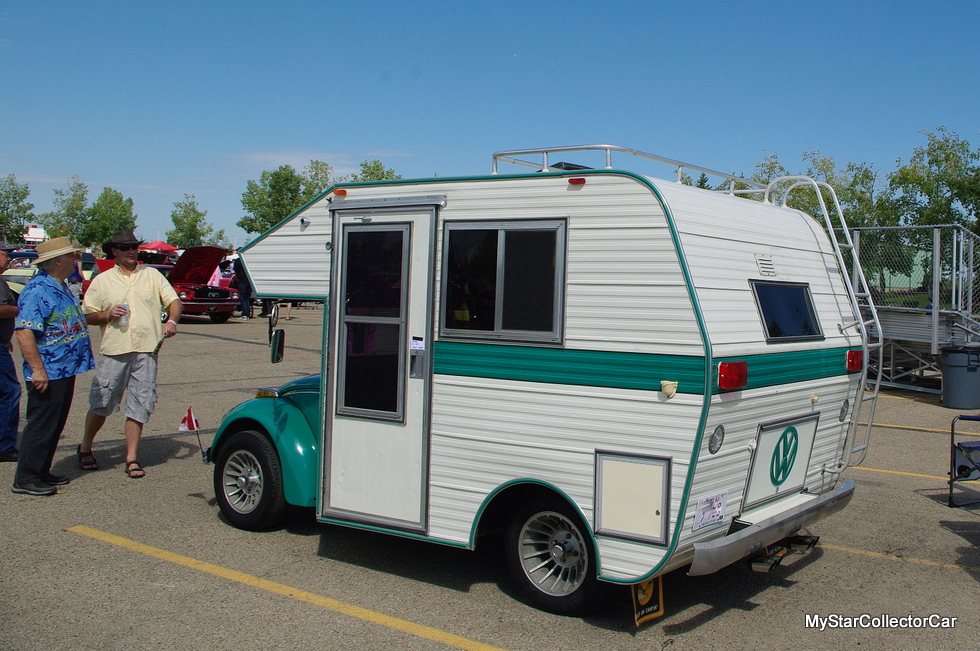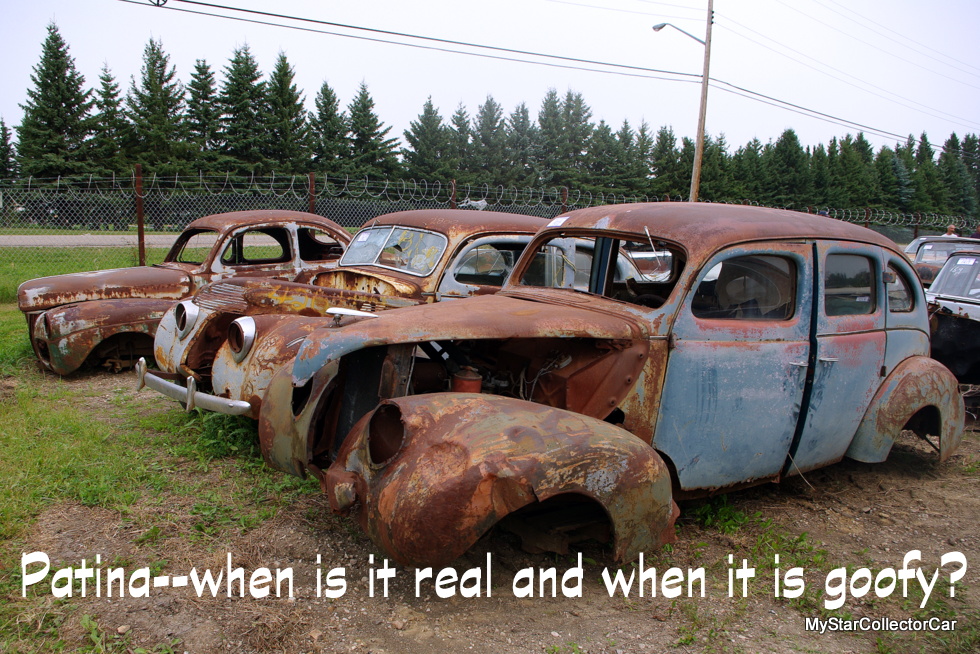The car market is a lot like the stock market because prices go up and down in both worlds.
Speculators, curbers, investors, flippers—whatever term you use for guys who buy and sell old iron pay close attention to what happens at auctions because that’s where prices are set.
The good news–if something you like for reasons other than spec buying is on this list of five vehicles– you’re in a great position to buy a classic.
Jerry Sutherland
The first car on the list is the ’57 Chevy.

These cars are the gold standard in the hobby because everybody wanted one for decades but now they’ve flatlined in price because every guy who wanted a ’57 Chevy is a lot older—or not around anymore.
I’m not saying you’ll find a good example of a ’57 Chevy for 2500 bucks because this is 2024—not 1964. I am saying that the sky-high numbers you saw on a mint ’57 Chevy Bel Air two-door hardtop are now in the past.

The only factory ’57 Chevys that will get into six-figures will be the fuelies—or incredibly resto-modded versions where the only original part is the trunk lid.

A really nice ’57 Bel Air convertible could still cross the six-figure barrier if it’s absolutely mint or has an interesting history, but an average ’57 Chevy is really close to affordable in 2024. Especially if you factor in the cost of the restoration.
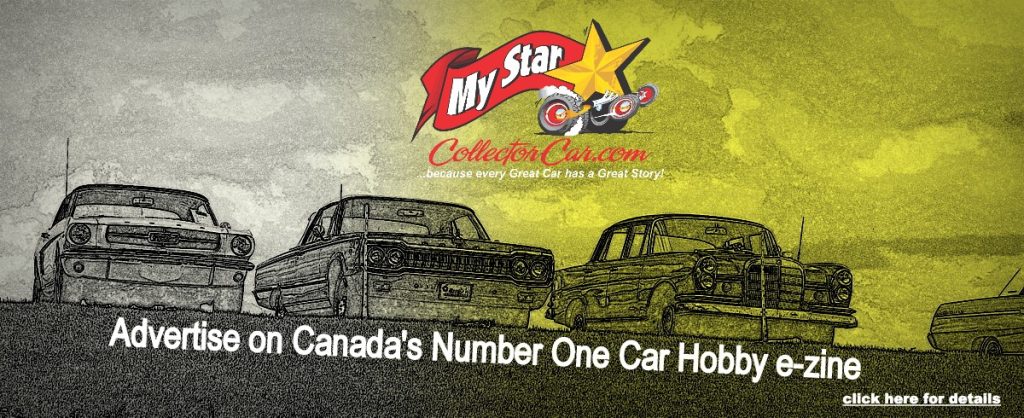
The third example is found in the general world of 1950s cars. Fifties-era cars in general are dropping because guys who like them can’t drive them from a retirement home or rehab center—or worse.

That’s good news for guys like me because my favorite era is 50s iron—especially Mopar fin cars. The high-end stuff like letter car Chryslers and rare DeSoto convertibles are still in six-figure country, but that’s because rare cars from any era are blue chip investments.

The lesser Dodge and Plymouth two-door hardtop 50s fin cars are well within reality because they’re going backwards at auctions. Again, you won’t find a really nice example for a few thousand bucks, but you will pay less than a full-on restoration—a lot less.
The third example is the classic Volkswagen van.

These German people-movers went over the moon at auctions a few years ago when money guys decided to channel their inner hippie at major auctions.

Three things happened after that.
One—buyers realized how impractical these VW vans were—especially on the freeway where a ’69 Camaro made a lot more sense.

Two—there’s a flavor-of-the-month theme to vehicles like the VW van, so once six other guys owned the same thing, the novelty wore off. The guys who rebuilt these vans after the first year took a pummeling in cost of restoration versus return on investment.

Three—South America built these vans well into the 70s, so all of a sudden you had guys buying them and adding windows, then trying to sell them for 150K. That, plus the uncertainty you sew when you introduce a joker card like imported South American vans into a hot—and specific market.
The fourth example is the first-Gen Mustang.

If you sell a six-cylinder, stripped-down, notchback 1st Gen Mustang you’re going to see a number you won’t like when you sell it. The reason is simple—Ford made a lot of them. The exception to this Mustang trend is anything with Shelby, Boss 302 or 427 in the name. They’re not going backwards at auction anytime soon.
The last example of flatlining prices is found in the station wagon world.

Wagons spiked in value over the last ten years, but they’re starting to hit realistic levels in 2024. The exceptions are again found in rare examples like loaded, mint Olds Vista Cruisers and rare examples from the 1950s and early 60s.

In other words, your 70s Ford wagon may not be the goldmine you thought it was, so the next guy is going to buy it for a smoking price.

In the end, the real winner is the buyer because old iron deserves to be in the hands of guys who really appreciate classic iron—not guys who treat cars like grain futures.
Jerry Sutherland
By: Jerry Sutherland
Jerry Sutherland is a veteran automotive writer with a primary focus on the collector car hobby. His work has been published in many outlets and publications, including the National Post, Calgary Herald, Edmonton Journal, Ottawa Citizen, Montreal Gazette, Saskatoon StarPhoenix, Regina Leader-Post, Vancouver Sun and The Truth About Cars. He is also a regular contributor to Auto Roundup Publications.
- CLICK HERE TO SIGN UP FOR THE NEWSLETTER
- CLICK HERE to Like us on Facebook
- CLICK HERE to Follow us on Twitter
- CLICK HERE to Follow us on Pinterest
Please re-post this if you like this article.






